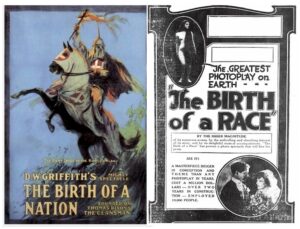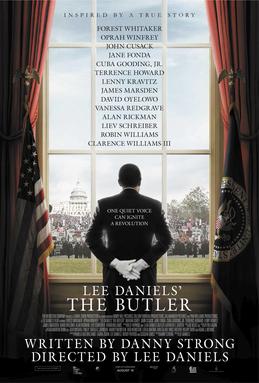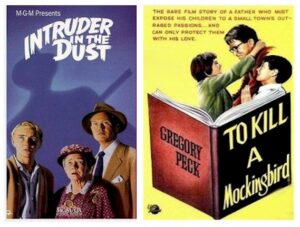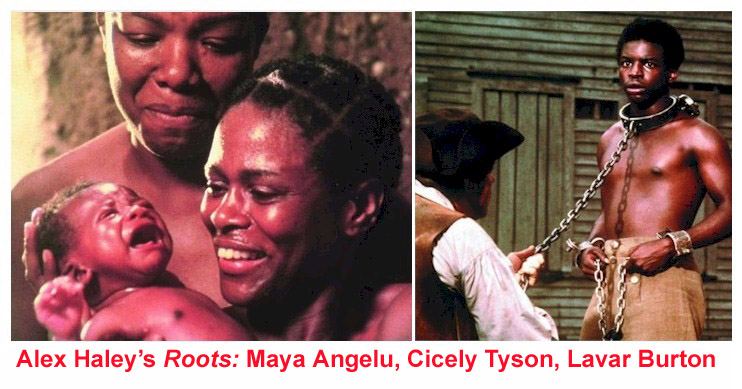Arts & Entertainment
Black History Month, Part 2: A Cavalcade of Memorable Films Covering the African-American Experience
In addition to February being Black History Month, it’s also the recognized as 100th anniversary of the birth of black cinema.
2009 was a milestone year in cinema for African-American journeymen. Not only was Precious (Based on the Novel ‘Push’ by Sapphire) nominated for Best Picture, but it also became the first such film to be directed by an African-American filmmaker, Lee Daniels, who was also nominated. Neither won. But it was a milestone right up there with Sidney Poitier breaking the color barrier in 1963 not only to be nominated for Lilies of the Field, but also to win.
Poitier had been on the rise since 1950 and his break-out role in No Way Out, as a doctor treating a white bigot, put him on the map. More leading roles followed, but it wasn’t until 1958 that he began to break through the color ceiling. In The Defiant Ones, under the direction of master filmmaker Stanley Kramer, he was nominated for a Best Actor Oscar for his role as an escaped convict chained to a white, bigoted escapee played by Tony Curtis. It was smooth sailing from then on.
Daniels followed in the footsteps of early Illinois pioneers, such as William D. Foster, actor, writer [using the name Juli Jones], and vaudeville agent for black artists who founded the Foster Photoplay Company in the early 1900s.
Oscar Micheaux, prolific author, screenplay writer, director, and producer of more than 44 films from the silents to the talkies until 1948, with actor Noble Johnson, and brother George Perry Johnson formed the Lincoln Picture Company. Their films depicted blacks as soldiers, family members, heroes – concepts, one historian wrote, “that were foreign to most mainstream films at that time.”
 So angered over the portrayal of whites in blackface in D.W. Griffith’s landmark silent The Birth of a Nation, they made the famous “answer” film The Birth of a Race (1918) – “the story of sin … A master picture conceived in the spirit of truth and dedicated to all of the races of the world.” It was the story of German/American brothers who join the war in Europe, one fighting for the U.S., the other who meets his death fighting for the enemy.
So angered over the portrayal of whites in blackface in D.W. Griffith’s landmark silent The Birth of a Nation, they made the famous “answer” film The Birth of a Race (1918) – “the story of sin … A master picture conceived in the spirit of truth and dedicated to all of the races of the world.” It was the story of German/American brothers who join the war in Europe, one fighting for the U.S., the other who meets his death fighting for the enemy.
Their vision was to break the racial stereotyping of blacks in film — “to portray the African-American community as they wanted to be seen, not as someone else depicted them.”
Foster’s 1912 film, The Railroad Porter was the first film with an entirely black cast and director. Micheaux’s 1925 Body and Soul introduced human rights activist to be Paul Robeson as a Jekyll and Hyde minister, which led to his break out role in the screen adaptation of Eugene O’Neil’s The Emperor Jones (1933) and James Whale (Frankenstein) casting him in the first talkie version of Show Boat as stevedore Joe, who sang “Ole Man River.”
Some black film critics criticized Micheaux’s work in particular for “perpetuating the same stereotypes found in mainstream films.” To the rescue came D.C. native Eloyce Gist, who with her husband James made morality films using real people instead of actors.
 One step forward, only to be followed in ensuing years by several steps back. The path to contemporary recognition wasn’t strewn with roses. Ironically, last year Daniel’s acclaimed film The Butler amazingly wasn’t even deemed worthy of being nominated in the field of nine films [in a category that’s allowed to expand to 10]; nor was he nominated. The performances of Forrest Whittaker and Oprah Winfrey were also snubbed.
One step forward, only to be followed in ensuing years by several steps back. The path to contemporary recognition wasn’t strewn with roses. Ironically, last year Daniel’s acclaimed film The Butler amazingly wasn’t even deemed worthy of being nominated in the field of nine films [in a category that’s allowed to expand to 10]; nor was he nominated. The performances of Forrest Whittaker and Oprah Winfrey were also snubbed.
That said, U.K.’s Steve McQueen took directing honors with the first film produced and directed by a black, 12 Years a Slave, the true story of Solomon Northup, a free African-American violinist in New York who in 1841 was drugged and sold into slavery. It won the Oscar for Best Picture. Chiwetel Ejiofor, who portrayed Northup, was nominated for Best Actor. Lupita Nyong’o, the Mexican/Kenyan actress [and director] who played outspoken abused slave Patesy, won Supporting Actress.
Jump forward to 2014 and Ava DuVernay’s Selma, which examines Martin Luther King Jr.’s planning and final execution of the voting rights march to Montgomery to confront Governor George Wallace. The march attracted worldwide attention because of the horrendous brutality of law enforcement against non-violent protests. It’s nominated for Best Picture, but the producers and many critics have questioned the Oscars for passing over David Oyelowo, who portrays Dr. King, for a Best Actor nomination.
Director DuVernay has also encountered heat for her depiction of LBJ as being more of a hindrance than help in Dr. King’s quest until he harangued him into submission. Noted historians and those close to LBJ state this is far from accurate – that, though once a Texas segregationist who toed that line in the Senate, he made an about face when he became VP under JFK and, on ascending to the presidency, vowed to continue JFK’s legacy. It’s no secret that LBJ was also trying to trump Attorney General Bobby Kennedy whom he despised [the feeling was mutual]. Whatever his motivations, LBJ got the bill passed.
DuVernay told CBS Sunday Morning’s Bob Simon that it wasn’t her intention to distort or mislead. “History is to be interpreted through the lens of the people who are reading it and experiencing it,” she said. “This is my interpretation.” Simon countered, “You were not interested in making a white savior film?”
Replied DuVernay, “I’m interested in having people of color at the center of their own lives. We don’t need to be saved by anyone. We do not have to have someone sweeping in on a white horse or someone saving the day or assisting us in our own narrative.”
What? Okay, true — if we lived in a perfect world. We don’t. Her thinking’s a bit warped. Through the ages, where would any minority group be had it not been for those in seats of influence and power standing up for right and smoothing the way? If LBJ was a stalwart ally of Dr. King’s from the beginning, wouldn’t that be a positive? Why not show these total opposites were partners and examine the bond between them?
There’s a long list of white producers and directors who bucked the system and cast their films with countless pioneering black actors, such as Bill Robinson, Rex Ingram, Ernest Anderson, Dooley Wilson, Hattie McDaniel [first African-American to win an Oscar; Gone with the Wind], Lena Horne, Pearl Bailey, Eddie Anderson [Rochester on The Jack Benny Program], Juanita Moore, and Dorothy Dandridge who opened doors for those to come.
Here is a select cavalcade of memorable films depicting the African American experience:
Griffith’s The Birth of a Nation (1915), considered to be one of the greatest films of all time — not so much for its story line, but for Griffith’s masterful filmmaking techniques. At two hours and 25 minutes, quite the rarity for the time, it told of how the Civil War divided friends and destroyed families; and, most controversial, during Reconstruction, “anarchy in the black-ruled South.” It was based on Thomas Dixon Jr.’s novel The Clansman: An Historical Romance of the Ku Klux Klan, and his short-lived Broadway adaptation. It was frequently called Griffith’s “plantation fantasy” and is filled with negative black stereotypes [barefoot legislators eating fried chicken, drunks, rapists] and depictions of lynching.
A precursor to Harper Lee’s To Kill a Mockingbird, the remarkable and almost forgotten Intruder in the Dust (1949), closely adhering to Nobel Prize winner William Faulkner’s novel [and shot in Oxford, MS], packs a powerful wallop – and in less than 90 minutes. To prevent a miscarriage of justice and clear a black farmer of murder, a prominent attorney at the urging of a white teen whom has been befriended by the accused reluctantly takes the case. Among the powerful scenes is the exhumation of a body by an unlikely trio; and when one of them fends off a mob set on lynching. If you screen the film, note the total absence of a musical score. Nothing is needed to enhance the inherent tension and fear. Directed by acclaimed auteur five-time Oscar nominee Clarence Brown
The accused, Lucas, is played by Puerto Rican actor and former singer and acrobat Juano Hernandez, who portrayed numerous black characters from the mid-1900s through 1970 and paved the way for the likes of Poitier. One of his most memorable performances was as W.C. Handy’s minister father in St. Louis Blues (1958).
To Kill a Mockingbird 
Tony-nominated Brock Peters (Lost in the Stars), the accused, segued from touring in Porgy and Bess in the late 40s to a distinguished career not only onstage but on TV (becoming one of the first featured actors in soaps) and in film (including the ground-breaking Carmen Jones, Porgy and Bess as Crown and The Pawnbroker) from the mid-50s-into early in the 21st Century.
Nominated for nine Oscars, including Best Picture, Director (Robert Mulligan), Supporting Actress (Mary Badham as Scout/Jean Louise), and Score (Elmer Bernstein), Gregory Peck won for Best Actor and Horton Foote for his screenplay. There’s quite a memorable moment at the conclusion of the trial when the Reverend Sykes (an uncredited Bill Walker) says to Scout: “Miss Jean Louise, stand up. Your father’s passing.”
A Raisin in the Sun (1961), screenplay by Lorraine Hansberry, from her 1959 Tony-nominated play, the first written by a black female, examines the powerful everyman dream of wanting a place in the world and a home for family even if it means standing up to prejudice.
This was the rare occasion when the Broadway stars were carried over into the film [a stipulation in Hansberry’s contract]: Tony nominees Poitier and Claudia McNeil along with Ruby Dee, who’d already made an impact in film, Diana Sands, Ivan Dixon, and Louis Gossett Jr., who were soon to.
Roots (1977), Alex Haley’s sweeping TV miniseries that chronicles his family, beginning with Kunta Kinte, an 18th Century African slave, and his descendants down to Haley himself.
The Color Purple (1985), Alice Walker’s Pulitzer Prize winning novel, exploring the challenges of an African American woman yearning for family and love in early 1900’s rural Georgia – even among her race, is brought to life by Stephen Spielberg. Boasts exceptional performances by Whoopi Goldberg, Oprah Winfrey, Danny Glover, and the stunning Margaret Avery. Nominated for 11 Oscars, including Best Picture, Actress (Goldberg), Supporting Actress (Winfrey); but, amazingly, no nod for Spielberg.
There are, of course, numerous others. Among them:
Sounder (1972), based on William Armstrong’s novel by, the tale of a poverty stricken Depression-era Louisiana family of sharecroppers; The Autobiography of Miss Jane Pittman (1974), TV movie based on Ernest Gaines’ novel recounting the 110 year journey of a former slave; Spike Lee’s controversial and brutal Do the Right Thing (1989), depicting bigotry in Bedford-Stuyvesant, Brooklyn; Glory (1989), the true story of Colonel Robert Shaw and the Civil War’s first all-black volunteer company as they battle the enemy and racism within the Union ranks; and Ghosts of Mississippi (1996) [partially shot in Jackson], boasting another stellar performance from Goldberg as Myrlie Evers seeking justice in the retrial of assassin Byron De La Beck, an Oscar-nominated tour de force portrayal by James Wood, and Alan Parker’s searing Mississippi Burning (1989) [partially shot in Braxton], as FBI agents attempt to break the conspiracy of silence in their investigation of the disappearance of some civil rights activists.
The 13-episode documentary series, Eyes on the Prize (1987), painstakingly examines the Civil Rights Movement from 1952 to 1965 using archival media reports, interviews and footage.
 Ellis Nassour is an Ole Miss alum and noted arts journalist and author who recently donated an ever-growing exhibition of performing arts history to the University of Mississippi. He is the author of the best-selling Patsy Cline biography, Honky Tonk Angel, as well as the hit musical revue, Always, Patsy Cline.
Ellis Nassour is an Ole Miss alum and noted arts journalist and author who recently donated an ever-growing exhibition of performing arts history to the University of Mississippi. He is the author of the best-selling Patsy Cline biography, Honky Tonk Angel, as well as the hit musical revue, Always, Patsy Cline.





















You must be logged in to post a comment Login